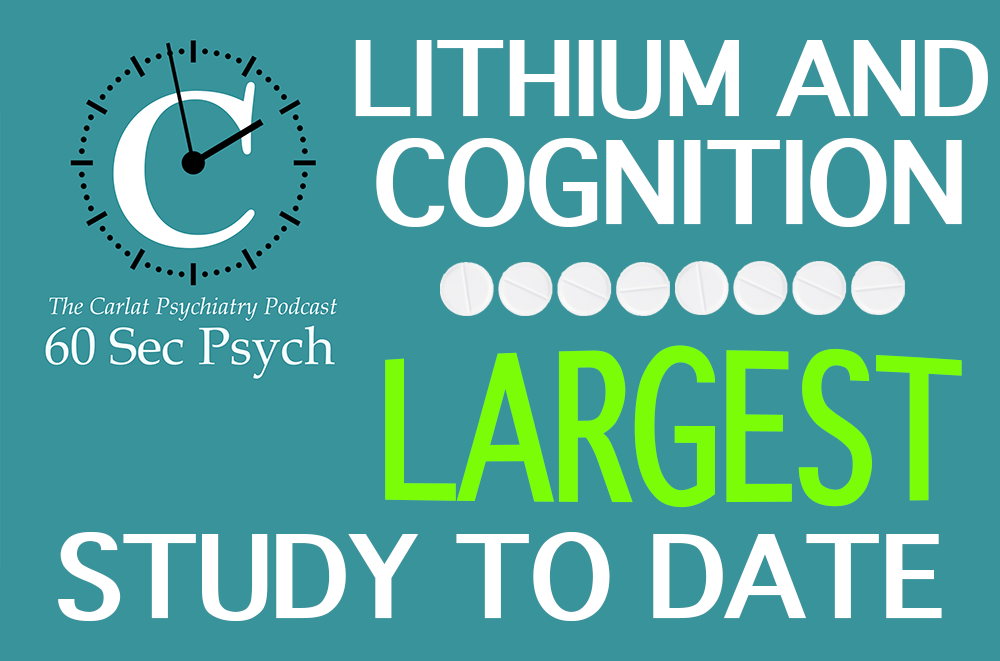Lithium and Cognition: The Largest Study to Date [60 Second Psych]
, Volume , Number ,
https://www.thecarlatreport.com/#
This study is the largest longitudinal study of cognition in lithium to date. Katherine Burdick and colleagues started with 262 patients with bipolar I – 64% were taking lithium [Link]. They made two key measurements, with the main limitation that neither were controlled. Here’s the findings. Published On: 8/12/2020 Duration: 2 minutes, 49 seconds Transcript: Researchers and patients disagree on lithium. Patients often complain of cognitive dulling on it, but research find that lithium has more neuroprotective effects than other mood stabilizers. It prevents dementia and increases hippocampal and amygdale volume and cortical thickness This study is the largest longitudinal study of cognition in lithium to date. Katherine Burdick and colleagues started with 262 patients with bipolar I–64% were taking lithium. They made two key measurements, with the main limitation that neither were controlled: First, they found no difference at baseline in cognitive testing for patients taking or not taking lithium. The ones who were not on lithium had more severe manic and depressive symptoms at the time of testing. This suggests lithium’s cognitive effects are not much different from other meds. Second, they did longitudinal testing on the patients who responded well to lithium–and half of the ones on lithium did have good sustained stability on it. When these patients were followed up about 4 months later, a third had improved cognition and there was no evidence of impaired cognition. These encouraging results are in contrast to uncontrolled studies show mild impairments on measures of processing speed, verbal learning, and creativity with long term lithium use. Today’s study didn’t look at creativity. In studies of healthy subjects lithium doesn’t seem to impair cognition. The researchers attributed part of the cognitive success they observed to the relatively low levels of lithium they used – around 0.6 – which is within the 0.6-0.8 range recommended for maintenance therapy. I’m only aware of one controlled study of cognition on lithium – this was a 2016 trial by Michael Berk’s group that randomized patients to lithium or quetiapine for mania, and at follow up one year later the lithium patients had better verbal fluency. The bottom line: Lithium likely has cognitive benefits, but patients may feel slowed down, dull, or uncreative on it. Stick to the lower dose range 0.6-0.8 for maintenance. Got feedback? Take the podcast survey.




Leave A Comment
You must be logged in to post a comment.